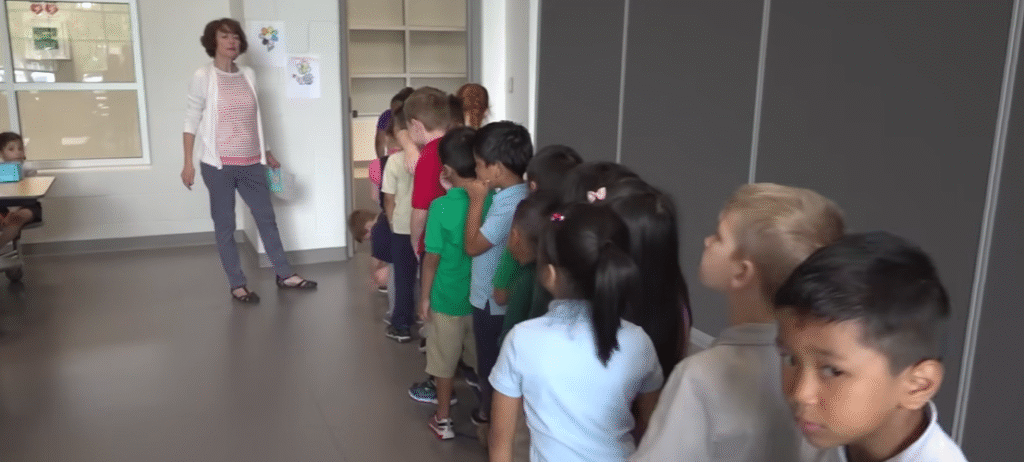Fairness, openness, and the unexpected strength of group action were all highlighted in the MySchoolBucks class action lawsuit. The $18.25 million settlement that resulted from what started as a small complaint about a few dollars in transaction fees changed the way parents and schools view financial responsibility.
Heartland Payment Systems, the business that created MySchoolBucks, a website that lets parents load money for school lunches, was at the center of the case. According to the plaintiffs, Heartland charged “program fees” that were not made explicit, causing families to unintentionally pay more each time they uploaded funds. These additional expenses multiplied across thousands of school districts between 2013 and 2019, leading to what many have called an invisible tax on convenience.
Although Heartland denied any wrongdoing, the settlement showed a deeper level of consumer advocacy. The business implicitly recognized the growing need for ethical payment systems—ones that are remarkably transparent about what families are being charged for—by pledging to reimburse impacted users. It was about rebuilding confidence in a system that millions of parents depended on, not just about refunds.
The settlement provided proportionate payouts based on how often parents used the service, and it closed for claims in August 2025. The symbolism was remarkably effective in reminding corporate players that small fees can result in massive accountability, even though the individual sums were small for many. The decision, according to legal experts, was especially advantageous for future transparency in digital payments and established a standard for how hidden fees ought to be revealed in consumer and educational platforms.
Case Overview — MySchoolBucks Class Action Lawsuit
| Field | Information |
|---|---|
| Case Name | Story, et al. v. Heartland Payment Systems, LLC |
| Court | U.S. District Court for the Middle District of Florida |
| Settlement Amount | $18.25 million |
| Settlement Website | MSBFeeSettlement.com |
| Defendant | Heartland Payment Systems (Processor for MySchoolBucks) |
| Plaintiffs | Consumers who used MySchoolBucks between June 18, 2013 – July 31, 2019 |
| Claim Deadline | August 20, 2025 |
| Fairness Hearing Date | September 25, 2025 |
| Settlement Administrator | Eisner Advisory Group LLC |
| Reference | ClassAction.org |

The court’s approval of the final terms during the fairness hearing on September 25, 2025, was a major step in addressing financial practices that had silently burdened families for years. The parents who filed the lawsuit saw the victory as morally as financially significant. They had demonstrated that perseverance could overcome intricate corporate defenses when it was led by justice.
Discussions regarding the case were particularly emotional on social media. Parents related how they felt surrounded by alleged “processing fees” that appeared in every transaction. Some explained how the few dollars accumulated over years of providing for several children. It was like being “nickeled and dimed by the cafeteria,” according to others. These common annoyances made the case remarkably relatable, turning it from a legal issue into a representation of consumer awareness.
There is no denying the similarities to broader financial trends. Travel, entertainment, and other industries have long relied on incremental surcharges, such as “service fees,” “administrative costs,” and “maintenance charges,” to cover up the true cost of convenience. The case of MySchoolBucks revealed how that trend has subtly permeated everyday family life. Parents used the legal system to remind businesses that openness is required and not optional.
This case has been compared by observers to larger regulatory initiatives that target “junk fees.” The MySchoolBucks settlement is a perfect fit with the Federal Trade Commission’s mission to force companies to remove ambiguous pricing structures. Through local solutions, such as a school lunch payment, this case became a strikingly successful illustration of how consumer protection laws can be applied to routine business dealings.
In an age of digital accountability, Heartland’s defense relied heavily on the argument that its fees were standard industry practice, which felt glaringly out of date. Price clarity is not only required by law, but it is also a sign of respect for parents who are managing several costs. The case demonstrated how even a minor lack of transparency can gradually erode customer loyalty and brought attention to the emotional exhaustion brought on by persistent micro-charges.
New complaints keep coming in spite of the settlement. According to some parents, MySchoolBucks still charges a $3.25 “program fee” for each transaction, even after updating its policies. The argument over how much of these fees are actually required was rekindled when a corporate email cited “rising operational costs.” The continued existence of such charges indicates a sector that is slow to change but is under growing public pressure to be more open.
The case is a crucial reminder to families to carefully read digital fine print. It also demonstrates the effectiveness of group consumer action in holding businesses responsible. Ordinary parents can accomplish previously unthinkable outcomes when they band together through legal frameworks. The MySchoolBucks lawsuit’s emotional undercurrent, which combines annoyance, tenacity, and eventual vindication, demonstrates a remarkably human side of law that is frequently overlooked in corporate narratives.
Other industries took notice of this lawsuit as well. According to financial analysts, the case’s success has significantly increased consumer trust in class actions, demonstrating that obtaining justice doesn’t always necessitate paying high fees per individual. It’s important to convey a clear message at times. “Transparency is no longer an option; it’s the cost of doing business,” one lawyer stated. In a digital economy where there is an implied cost associated with each click, that observation feels especially novel.

